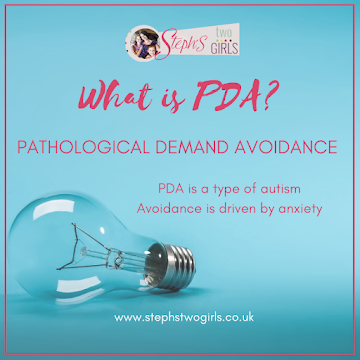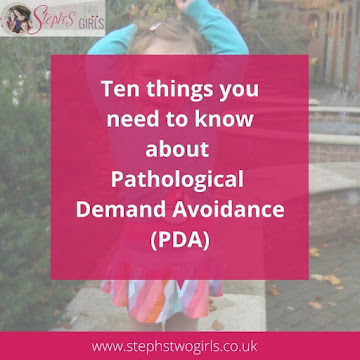There's a good chance that people are becoming immune to 'Awareness Days' now, so there could be a good call for changing the name to Acceptance Day. I'm sure there are still many people who are not prepared to accept the idea of PDA... and that is why I must blog. Even though, seriously, I have no time at all right now, with a house move coming up in 5 days time, eeek (to hear more about that, you could visit my House Renovation posts?!).
So why blog if I don't have time? It's simple. Spreading the word is the main reason I started this blog, over seven years ago now. Initially it was to help those close to us understand our daughter better; as time has gone on the focus has shifted to trying to create awareness of PDA, at the same time as developing understanding. I do sadly still feel that I have to justify this, and everything else I do, but I'll gladly do that to make life easier for my girl. For both my girls, in fact.
The 15th of every month is Siblings Project day - every month for the past 3 years I've been taking a photo of our two girls together and I love the way it has turned into an ongoing photo diary for them. This month's photo was taken this weekend, over in our new house, as the girls played around and giggled together. Tamsin is an amazing sibling to her younger sister; she's had to learn the PDA strategies and use them, even when she'd rather not have to. Sometimes she understands even better than us how to placate and help Sasha - that childhood sibling bond really is strong.
So what is PDA? A little refresher, or quick and easy introduction for anyone new here, if I may.
Pathological Demand Avoidance is a type of Autism Spectrum Condition (currently known as ASD or Autism Spectrum Disorder), just as Asperger's Syndrome and classic autism are other types.
In short, the central difficulty for people with PDA is their avoidance of the everyday demands made by other people, due to their high anxiety levels when they feel that they are not in control.
Of course, many children avoid demands to some extent, but children with PDA avoid everyday demands to a greater extent than typically developing children. That's why it's called pathological.
As per the PDA Society, the main features of PDA are:
- Obsessively resisting ordinary demands
- Appearing sociable on the surface but lacking depth in their understanding (often recognised by parents early on)
- Excessive mood swings, often switching suddenly
- Comfortable (sometimes to an extreme extent) in role play and pretending
- Language delay, seemingly as a result of passivity, but often with a good degree of 'catch-up'
- Obsessive behaviour, often focused on people rather than things.
For lots more information about PDA, please do visit the PDA Society's webpage at www.pdasociety.org.uk. The PDA Society is a charity run by parents who all have children with PDA and they would definitely appreciate your support, whether that takes the form of reading and understanding a little more, or spreading the word by sharing their posts, or any other way you can think of offering help. They can also be found on Facebook and Twitter.
Julia Daunt is an adult with a diagnosis of PDA. She writes the blog Me, Myself and PDA and has also written a book about her experiences.
There's also Riko who writes her blog PDA and More. It's great to see and hear from these adults who are able to explain how it feels to live with this condition and it gives me hope that our girl may also one day be able to express herself a bit more.
Another great place to go for information is the website called PDA Guidance which was created by Jane Sherwin, author of 'My Daughter is Not Naughty'. There are other blogs, and many Facebook groups which offer support to those living with the condition.
If you're a Facebook fan it would be much appreciated if you could follow my blog page and share posts from there - www.facebook.com/stephstwogirls
Finally I'd like to leave you with ideas on how you can help children with PDA by using strategies which suit them. One of my most popular posts contains Strategies for PDA (I'm so creative with these post names...)
If you've enjoyed my blog now or previously, I'd be super happy to be nominated in the upcoming BritMums BiBs 2017 Blogging Awards. I did make it into the finals of the Inspire category last year and it would mean so much to me to be able to spread the word on PDA even further by finishing in that group again! Thank you if you voted for me last time.






















No comments:
Post a Comment
Comments are always very much appreciated and can really help the conversation go further...